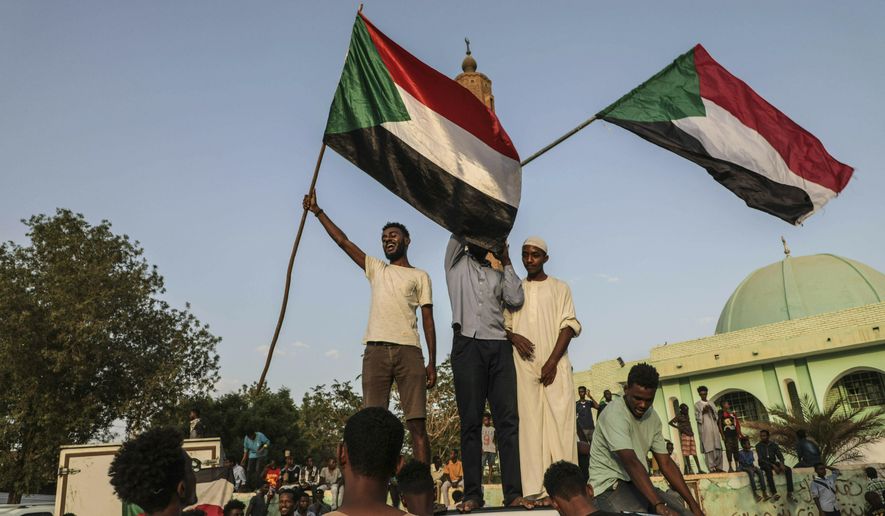A new video showing a feared government militia attacking a group of teens is already casting a shadow over prospects that Sudan’s new transitional plan from military to civilian rule will go smoothly in the months ahead.
Private analysts cautioned Monday that the proposed accord signed late last week may be too vague, and there is still no firm guarantee the Transitional Military Council will willingly cede power after having ousted longtime authoritarian President Omar al-Bashir in April.
The military and a pro-democracy coalition agreed last week on a joint sovereign council that will rule for a little over three years while elections are organized, according to The Associated Press, with both sides saying outside pressure from the Trump administration and African states was critical to the deal.
Military leaders over the weekend said the army would return to its barracks after 21 months, when leadership of the council passes from a military representative to a civilian.
But that leaves lengthy transition, with some activists from the Forces for Freedom and Change fearing that Gen. Mohamed Hamdan Dagalo, who is known by the nickname “Hemeti,” and other military leaders will be leery of ceding power.
“The problem is, accepting Hemeti as part of this is a very dangerous game,” said Sudanese American human rights advocate Azaz Shami. “It’s doubtful that he will ever be indicted anyway, and if you don’t address the accountability question, you’re just disparaging the problem.”
Discussion between the two sides resumed last week after tens of thousands of civilians held mass demonstrations across the country on June 30 to show their disapproval of the ruling military council and its attacks on protesters on June 3.
In a statement released by opposition group Sudanese Professionals Association, the new agreement establishes continued military rule for 21 months, followed by civilian rule for 18 months and ending with the appointment of the 11 sovereign council members.
The council will be made up of five military-selected rulers, five civilian-elected rulers and a leader elected by both sides. Protesters’ demands for an independent technocratic Cabinet were also met.
“We have won a victory against injustice,” said Shihab Salah, a 23-year-old unemployed engineering graduate carrying a national flag, Reuters reported. “Our goal is to achieve freedom and justice and find jobs for young people. Civilian rule and democracy are the future of Sudan.”
Gen. Abdel-Fattah Burhan, head of the military council, said in televised comments late Sunday the council that took power after Mr. al-Bashir was overthrown will be dissolved, according to the AP. Gen. Burhan denied army troops took part in the attacks on the sit-in protesters.
“We trust that military council members had nothing to do with what happened in the sit-in dispersal,” he said.
Included in the new peace deal is an independent investigation of those June 3 attacks, as well as the reinstatement of the internet access shut down during the recent clashes.
Casting an immediate shadow over the peace deal was the video of the dreaded “Janjaweed” militia, known for its role in the suppression of separatists in the Darfur conflict. The violent images “open an unhealed wound,” Ms. Shami said.
Amnesty International in a statement warned that abuses of power must be held accountable and human rights in Sudan must be protected if the agreement is to prove durable.
“The devil will be in the detail of any deal — but we hope this marks a step towards an end of the horrific crimes that have been committed against the people of Sudan for decades,” the statement said.
The U.S. released a statement Saturday commending the AU and Ethiopian mediators on their work in Sudan.
“We look forward to immediate resumption of access to the internet, establishment of the new legislature, accountability for the violent suppression of peaceful protests, and progress toward free and fair elections.”






